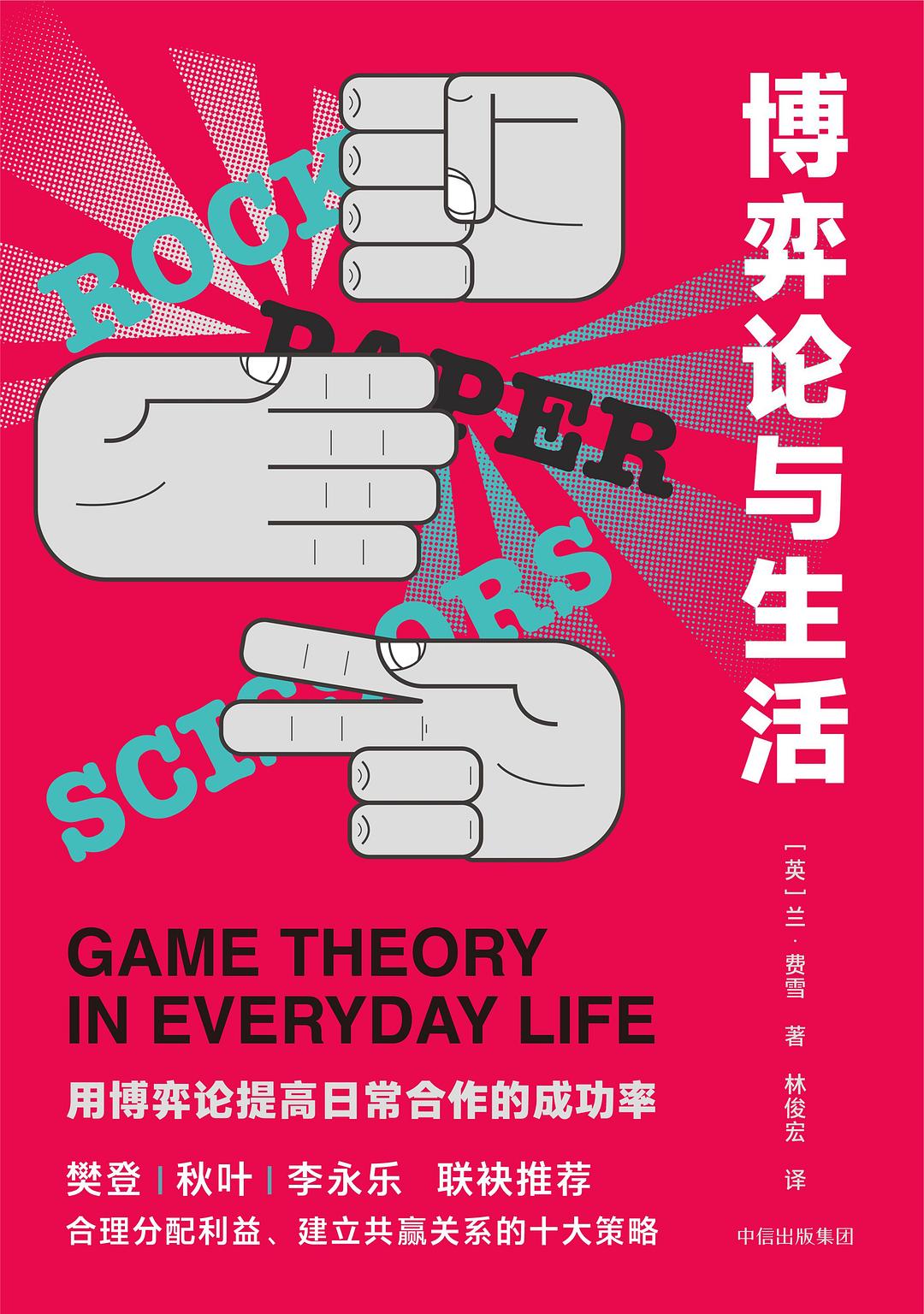WULOLIFE
《博弈论与生活》作者: [英]兰·费雪 出版社: 中信出版社
《博弈论与生活》作者: [英]兰·费雪 出版社: 中信出版社
Couldn't load pickup availability
Description
内容简介 · · · · · ·
用博弈论提高日常合作的成功率
合理分配利益、建立共赢关系的十大策略
◎ 内容简介
博弈论自20世纪40年代诞生以来,得到西方商界、经济学界、军事领域、社会学界的广泛应用。博弈最佳的应对策略不是冲突,而是合作;不是竞争,而是互助。
他在跨学科研究中找到了完备的科学问题处理方法,用博弈论中的合作策略为日常生活中的问题提供行动指南。
例如:如何解决婚姻纠纷、邻里矛盾、劳动争议?
如何成为别人口中诚实重诺的人?
如何在对峙的僵局中破冰、打开局面?
如何获得公平的待遇和结果?
如何避免公共利益被侵占?
如何合理分配有限的资源?
……
博弈论可以帮助不同利益的决策者建立起能够自我规范、自动运作的合作关系,实现共赢。
◎ 编辑推荐
聚焦合作策略,为日常生活中的矛盾纷争找出最优解。拥有物理学博士、化学硕士、哲学硕士的兰·费雪在跨学科研究中心找到了完备科学的解决问题的方法,在此倾囊相授。书中所涉案例均来自真实生活、历史事件。
不上公式也能读懂博弈论。上至90岁下至9岁,轻松读懂博弈论。
百万级畅销书《人类简史》《未来简史》译者林俊宏献译。
◎ 名家推荐
有人说博弈论是懦夫博弈,两个汽车面对面不让路就对撞,谁先让?博弈论大家、诺贝尔奖得主谢林的建议是:你抢先把方向盘拆下来扔出有他拐弯才能不撞车。 Download the link below
——秋叶 秋叶品牌创始人
我在科普视频中多次提到博弈论,而这本书没有使用任何却用一个个有趣的故事解读了博弈论中的经典案例。其实,囚徒困境、公地悲剧、懦夫博弈等博弈现象在生活中随处活有新的认识。
——李永乐人大附中物理教师,科普作者
大大小小的博弈,我们日常生活中就有,但它不是的零和游戏与高深莫测的决策理论。
博弈能够让多劳者多得、能够合理分配有限的资源、能够在互相制约中促成各方的合作共赢。
——樊登樊登读书首席内容官
本书为我们阐释了合作的进化理念,简明扼要地总结了这些理念对我们的世界观和思维方式带来的改变。
——约翰·R.豪瑟 麻省理工学院 斯隆管理学院 营销学教授
合作的进化促成了复杂的人类社会并使之得以持续。能否有效地解决气候变化问题、物种减少问题以及持续增长的人口生存问题,都取决于对合作的透彻理解。阅读这本书吧!
——罗伯特·梅勋爵牛津大学动物学系教授
兰·费雪在这本书里将博弈论与现实生活紧密结合,应用于家人的互动之中、朋友的交往之中、商业的往来之中以及国际关系的处理之中,妙趣横生,通俗易懂。
——罗伯特·马克斯 澳大利亚管理研究生院教授
为什么要合作?为了回答这个简单的问题,兰·费雪带领我们踏上了一场趣味无穷的旅行,共同探索了这个时代最重要的一门科学。对于生活中的博弈游戏,指南了。
——威廉·庞德斯通 《囚徒的困境》和《无价》作者
兰·费雪通过列举自己生活中的见闻和经历,阐述了博弈中玩家遭受的痛苦。他认为,博弈论不仅让玩家明白博弈带来的后果,也有助于玩家避免遭受因博弈失败造成的愤怒或悲伤。
——史蒂文·J.布拉姆斯 纽约大学政治学系教授,《双赢之道》作者
作者简介 · · · · · ·
兰·费雪(Len Fisher)
英国布里斯托大学物理系教授、纳米物理学与软物质研究所研究员、知名科普作家,热衷于与大众分享科学界的新鲜事。拥有悉尼大学、新南威尔士大学等多所名校的化学、数学、辐射化学、物理学、生物科学、哲学等学科的博士和硕士学位。
于2004年凭借畅销书《搞笑学物理》赢得美国物理学会科学写作奖。另有《如何泡饼干》《完美的群体》等多部畅销书。
林俊宏
翻译学博士,译作有《人类简史》《未来简史》等。
